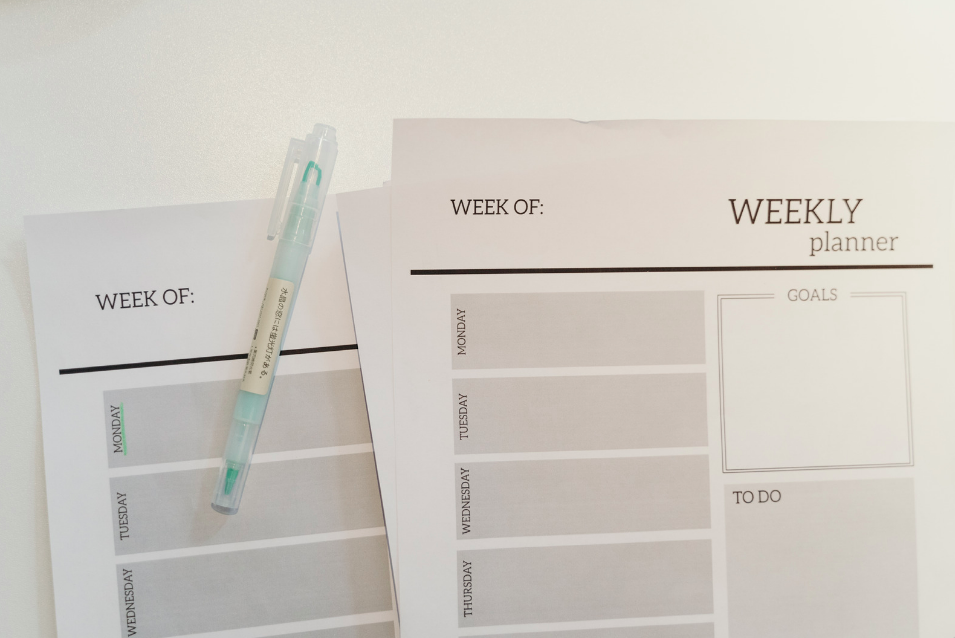
Key takeaways
- Final year students should manage time effectively and set realistic goals
- Utilize university resources like counseling and academic support services
- Maintain a balance between academic responsibilities and personal well-being
You know how they say, “first year doesn’t count”; well, final year is undoubtedly the most important part of university. It’s no surprise then, that students often fall victim to a plethora of issues such as depression and anxiety due to the pressures of academic stress. Heavily weighted assessments and exams that will determine your overall success at university are panic-inducing. However, they don’t need to be. The title of this article may sound like a survival guide but these are crucial tips that will allow you to do more than that. With our help, you can drastically improve the quality of your time in your final year of uni and most importantly, actually enjoy it!
Stay Organised!

One tip that cannot be stressed enough is organisation. Your final year at university is a scary prospect in and of itself, but being disorganised in addition to this is a completely different monster. Luckily there are things you can do to help yourself such as staying on top of your reading and doing assignments promptly. Completing all of the necessary reading is extremely useful for final year students, allowing you to have a better understanding of your subject and thus feel more confident doing it. Otherwise, you will oftentimes find yourself confused and behind the rest of your classmates if you are reading the learning materials late. You might want to invest in a journal or planner to help you spend your time wisely.
Being overwhelmed is a horrible feeling most uni students can relate to. It diminishes our ability to perform well. Assessments completed on all-nighters and energy drinks never quite amount to much do they? Constructing a consistent schedule will help you stay ahead.
Set a schedule!
Giving yourself time to complete your work is essential, this prevents you from panicking, especially when you realise you haven’t met the success criteria. One easy way to achieve this is to set a schedule (and commit to it). You do this by listing a number of realistic objectives that you can complete within different time frames, i.e. a day, a week, a month etcetera. This will keep any feelings of anxiety at bay. You will likely have more than one task to focus on so a good way to deal with this is to separate your time consistently, this will make navigating between different tasks easier.
Another key tip for handling your dissertation is to start it as soon as possible. This can be approached in various ways. It may not translate to actually adding to your word count, but actions such as conceptualising the direction of your work or researching alternative viewpoints can place you in a much more comfortable position than you might anticipate. You may end up realising that will you actually answer all of the questions you intended to by following this method. Try to keep in mind how good it will feel when you’re done!
Stay in frequent contact with your lecturer

It can be incredibly intimidating having to speak with your lecturers, especially those supervising the progress of your final year projects. Many students find themselves prone to continually putting off meetings and generally just avoiding them altogether by ignoring emails.
For your final year at university, try to remain in consistent contact with your lecturer. It may seem annoying and difficult at first but this is guaranteed to improve the quality of your work. Your personal tutor can assist you with your dissertation by recommending different readings that will help sculpt your work appropriately.
Remember to use your lecturer’s office hours and if you can’t, use a program like Zoom or Microsoft Teams. Don’t be afraid to have your work reviewed, all criticism will benefit you in the future.
Take care of your health!

Your health and wellbeing is a priority (even at uni.) In fact, you’ll be surprised at what a healthy lifestyle can do for academic achievement. Drinking an adequate amount of water, for instance, can keep you alert and less tired. Avoid cheap, crappy food and drink like pot noodles and general fizzy drinks like the plague. They may quench your hunger or keep you wired in the short term but you’re likely to feel fatigued from the lack of nutrients that you should be getting. Exercise is also a good way to boost your immune system and give you endorphins which will motivate you to work harder and longer.
Don’t isolate yourself when you’re studying
During exam time, many students find that they don’t have enough time to socialise and feel guilty when they do. While time is indeed precious, binging TV shows and movies instead isn’t a better use of your time. We promise your Netflix will be there when you come back. Instead, take a break to go out with your friends- It will do wonders for your mental health. It is not the same as being locked in your room for 2 days surfing the internet. Try to mix seeing your friends with physical activity like bike riding to boost your benefits. Being organised allows you to socialise in a guilt-free manner.
Get your sleep!

Failing to get enough sleep is a massive mistake many students make in their final year. Sleep truly is a remedy, a recommended stress reliever and a rejuvenator. In fact, students who take time to prioritise their sleep tend to achieve better at university. By benefitting your retention skills, students will find themselves more equipped to deal with their workload. You can also lessen the amount of inevitable sick days which in turn reduce the amount of time you have for your work.
Look after your mental health
Neglecting your health can lead to a number of different problems from depression to insomnia, negatively affecting your academic and social life.
Your final year at university should be fun. Remember that taking time to hang out with friends is important. So, be sure to stay organised, speak to your supervisors and complete assignments early and you’ll feel so much better for it.
Have any more tips that helped you survive your final year? Leave a comment below!




